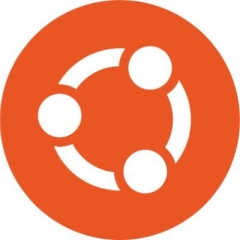What is most valuable?
It's a free and open source software-defined storage (SDS) that runs on various platforms such as Ubuntu, CentOS, RHEL, IBM Z, among others.
It can be used for a bulk object including as an alternative to OpenStack Swift, Swiftstack, and others. Can also be configured for the block as well as the file.
How has it helped my organization?
What needs improvement?
Ease of use, ease of management, ease of deployment, ease of troubleshooting, resiliency, automation, and performance.
For how long have I used the solution?
I have used various versions of Ceph off and on at different times, going back several years.
What do I think about the stability of the solution?
Yes, on the other hand, deploy in a controlled environment, stay within the “box”, and it works well.
What do I think about the scalability of the solution?
For my use, I did not scale it very large, as was concerned with doing so and with not having enough hardware to maintain performance.
In other words, depending on what you are looking to do, while being SDS, Ceph is also hardware dependent, as is all SDS.
However, it also needs CPU, memory and fast storage for OSDs as you scale activity.
How are customer service and technical support?
N/A, relied on various forums and Ceph site (looked at Red Hat site info, however, found ceph and other sites more useful).
Which solution did I use previously and why did I switch?
I have used and do use various others, including services such as AWS S3 /EBS /EFS /EC2 instance, as well as Azure Files/Blobs/etc, GCS.
Also on-prem software, including Microsoft S2D, VMware vSAN, OpenStack/Swift among others.
How was the initial setup?
Depends on your experience, and what you are trying to do, there are some useful scripts floating around, or you can get a turnkey kit solution from vendors such as Fujitsu, SUSE, Red Hat, and many others.
What's my experience with pricing, setup cost, and licensing?
Look beyond the initial cost, for example, free if open source version, or price for a kit from Fujitsu, SUSE, RHEL among others.
Look at ongoing costs for maintenance. This is particularly important if you are going the free route as you will end up paying regarding allocating or using more of your staffs time to support, maintain, upgrade and enhance.
Which other solutions did I evaluate?
VMware vSAN (still have), Microsoft Windows Storage Spaces Direct/S2D (still have), Dell EMC ECS/Atmos (still have), OpenStack Swift (still have), AWS S3 (still have), Azure (still have), Datacore (did a trial), and many others.
Some others to look at and consider include Dell EMC ScaleIO, Elastifile, Hedvig, HDS HCP, NetApp StorageGrid, Nexenta, Noobaa, Rozo, Starwind, Storpool, Virtuozzo, and WekaIO, among others.
What other advice do I have?
Do a proof of concept (POC), scaling as large as you can as close to your intended production environment.
If needed, use Google, AWS, Azure or some other cloud to do the POC in.
Look for several things in your POC including what are the hardware performance and resource (CPU, memory, I/O, SSD) dependencies, how easy to manage, tune, troubleshoot along with resiliency.
For example, fail nodes and see how system recovers as well as what you need to do to support the environment. Don’t be scared of Ceph, be prepared and informed, use it where it makes sense and is capable of meeting your needs. Make sure that you can get ceph to work for you, vs. you having to go to work for ceph.
Disclosure: My company does not have a business relationship with this vendor other than being a customer.
















TY